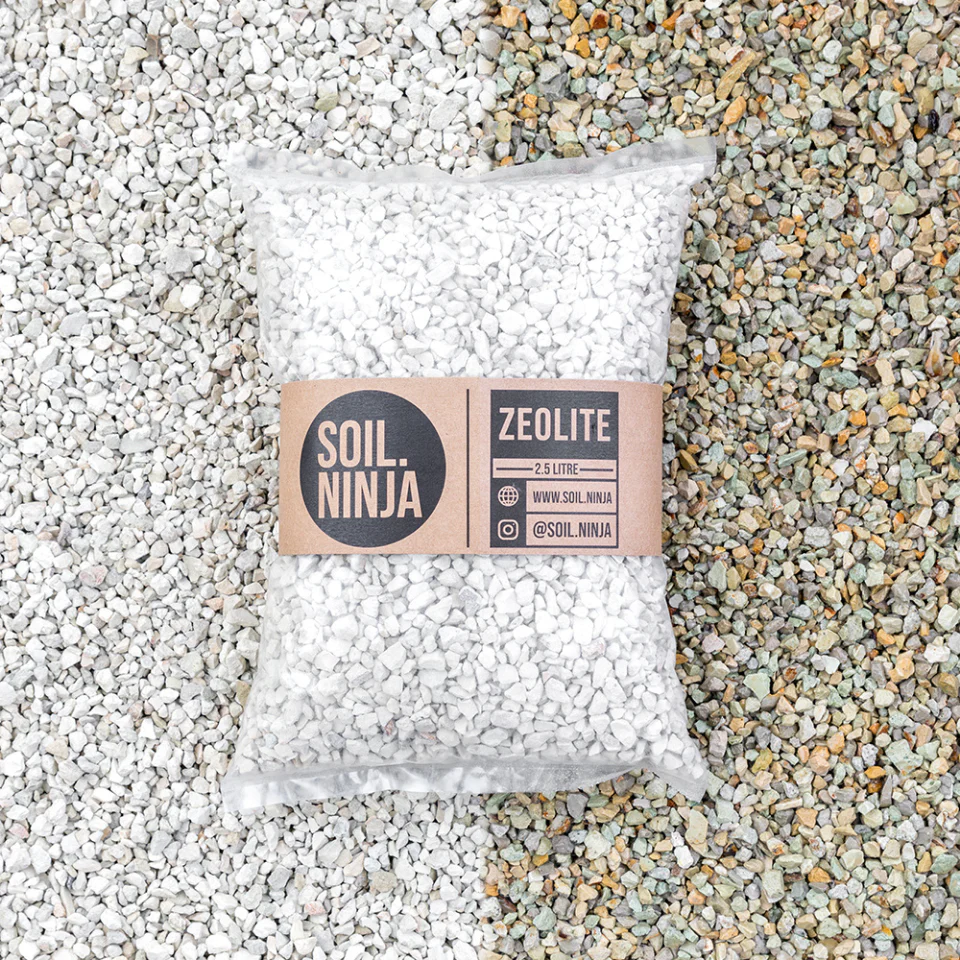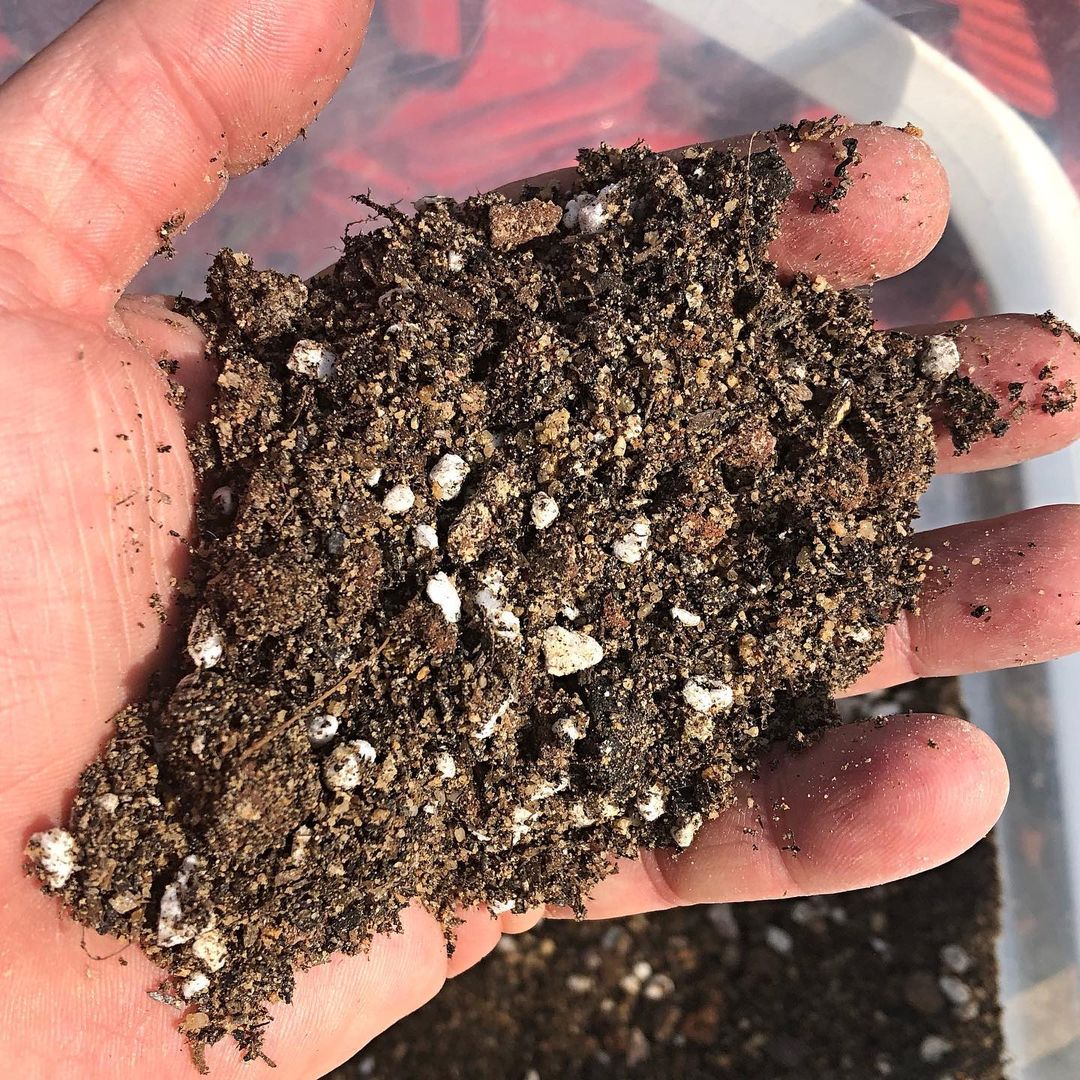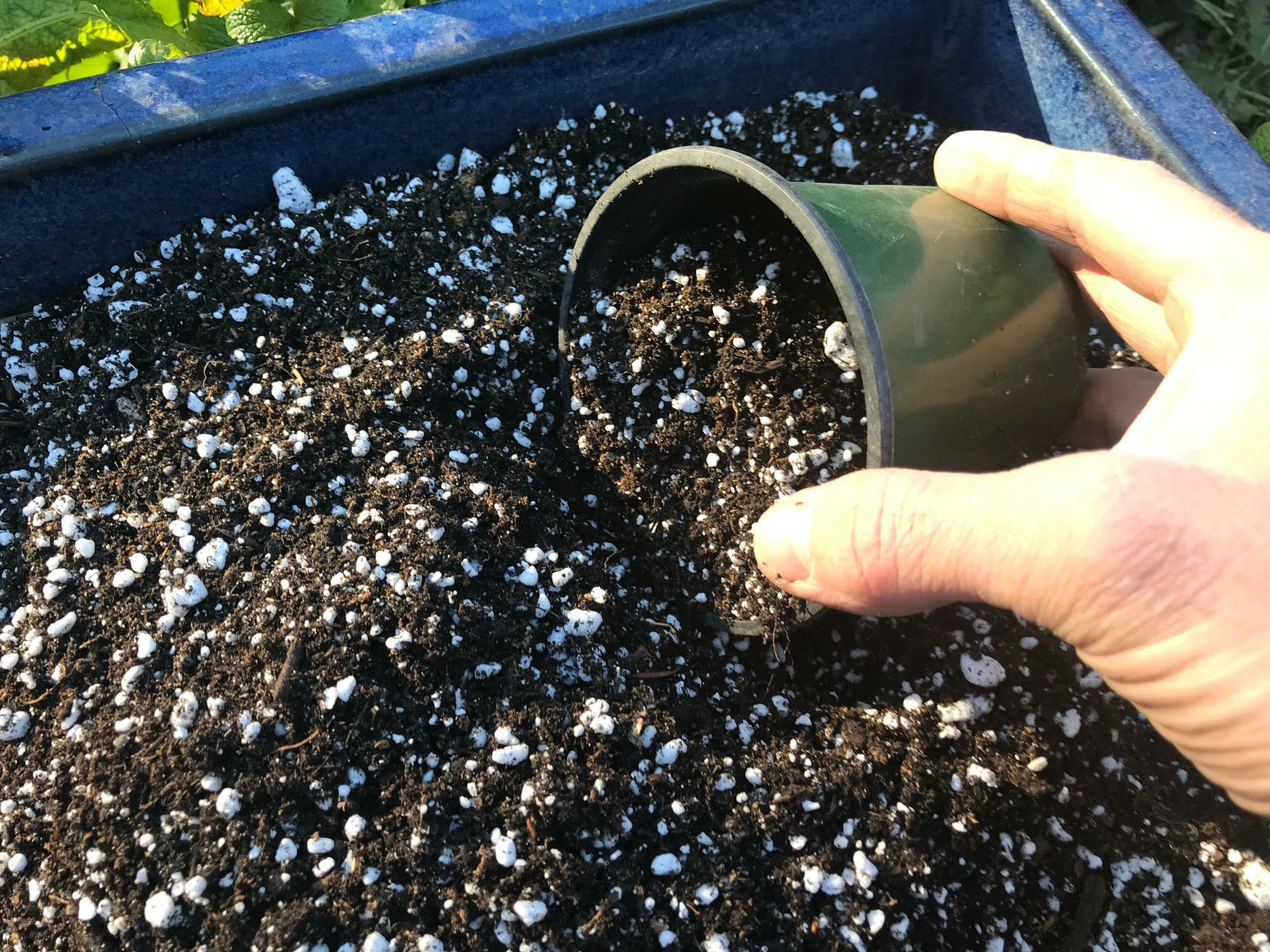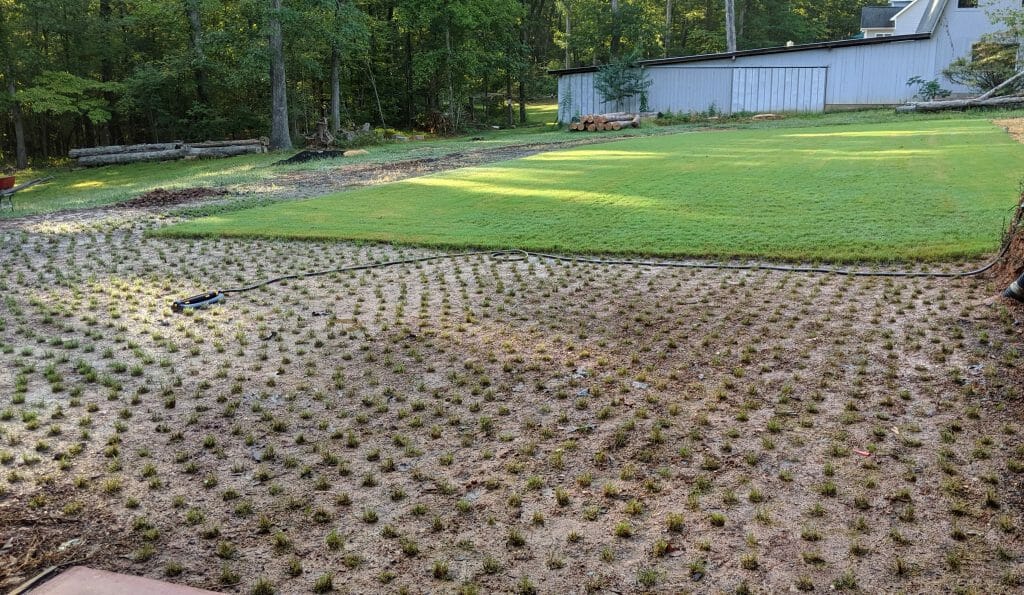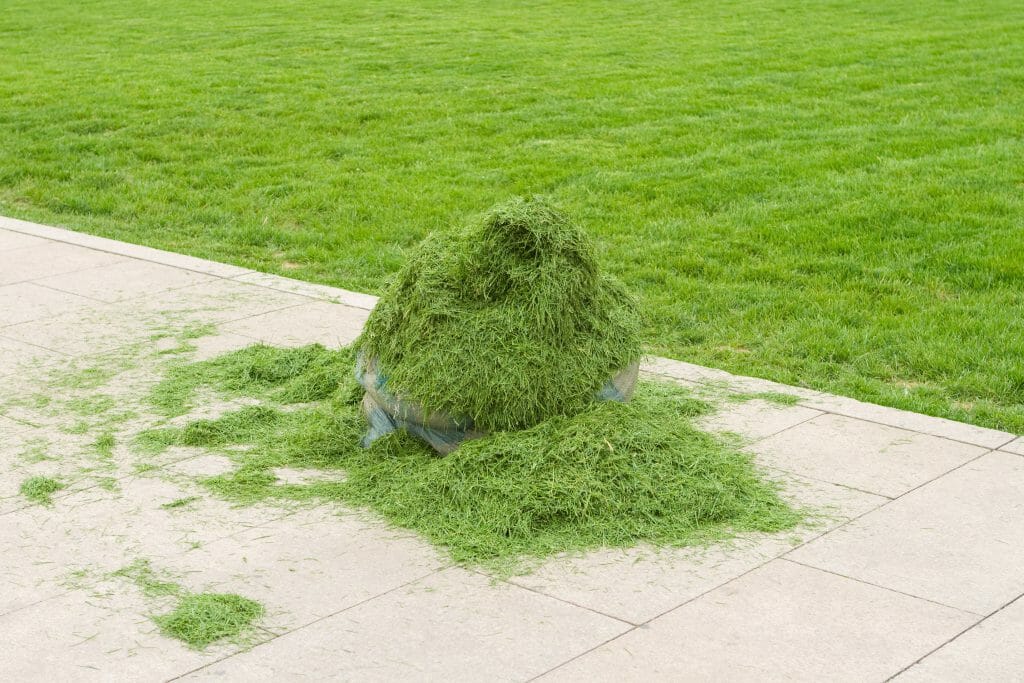We’ve all heard of miracle minerals and soil amendments that promise to boost crop yields, improve soil health, and make our gardens thrive.
But with so many options available in garden centers or online, it can be hard to separate the facts from the hype.
Zeolite, a mineral with an intriguing porous structure, has been quickly gaining traction among gardeners for its numerous advantages when it comes to enriching the soil and nurturing plants.
Is Zeolite good for soil? Yes, Zeolite improves soil structure, increases water retention, and provides essential nutrients to your plants. Zeolite also has a high cation exchange capacity, which means it releases nutrients when plants need them!
Today, I will cover everything you need to know and everything I think you should know about Zeolite!
What is Zeolite?
First things first, if you’re reading this article, I’m sure you know what Zeolite is, but for any noobies out there, read on:
Through a process of extreme heat and pressure over millions of years, Zeolite is crafted from volcanic ash and sedimentary rocks to form a powerful natural mineral.
It’s made up of a framework of silicon, aluminum, and oxygen atoms, with small pockets or “cages” that can trap and hold onto other atoms and molecules.
Because of this unique porous structure, Zeolite has a high surface area-to-volume ratio, which means it has a lot of surface area for its size.
Is Zeolite Good for Soil?
Based on the research, studies available, and my experience using it, Zeolite is a good supplement for soil.
Utilizing Zeolite can enrich the soil, increase oxygen levels and decrease harmful pollutants while creating a healthier environment.
Additionally, its water-retaining properties can help keep the soil moist and plants healthy. But like any soil amendment, the results may vary depending on the growing conditions and the type of plants you’re growing.
As I always recommend to any regular readers, please test a small area first before committing to using it on a larger scale!
How Does Zeolite Work in Soil?
With its specialized cages, Zeolite can effectively lock in essential nutrients like ammonium and potassium that would otherwise drain away.
Then, and this is the amazing part, these nutrients are then slowly released back into the soil as the plant roots take them up, which can help to improve soil fertility over time!
In addition, the porous structure of Zeolite can also improve soil aeration and water retention, which can be beneficial for plant growth.
Another awesome benefit of using Zeolite in the soil is that it can help to reduce the number of heavy metals and other pollutants that can accumulate in the soil over time.
The cages in Zeolite can trap these harmful substances, preventing them from being taken up by plants and potentially contaminating food crops – you wouldn’t believe just how damaging this can be.
Zeolite, a naturally occurring mineral made of aluminum, silicon, and oxygen, has become increasingly popular as a soil conditioner. Here’s how it works to improve soil and plant health:
1. Water Retention and Drainage:
- Retention: Zeolite has a porous, honeycomb-like structure. This allows it to absorb and retain water efficiently. When used in soil, zeolite particles can hold water and then release it slowly over time, providing a more consistent moisture supply to the plants.
- Drainage: At the same time, its structure helps improve soil drainage. It prevents excess water from compacting the soil, reducing waterlogging and root rot risks.
2. Nutrient Retention and Release:
- Cation Exchange Capacity (CEC): Zeolite has a high Cation Exchange Capacity, meaning it can hold and exchange positively charged ions (cations) like potassium, magnesium, and calcium. It can absorb these nutrients from fertilizers or natural soil processes and then release them slowly over time, making them more available to plant roots.
- Preventing Leaching: By holding onto nutrients, zeolite reduces the risk of them washing away (leaching) during watering or rain. This makes fertilization more efficient and reduces the need for frequent fertilizer applications.
3. Soil Structure Improvement:
- Aeration: By creating small channels in the soil, zeolite helps increase aeration. Good air circulation within the soil is crucial for healthy root growth and the activity of beneficial microorganisms.
- Preventing Compaction: Regular soil can become compacted over time, especially in high-traffic areas or with heavy clay content. Zeolite helps maintain a looser soil structure, promoting better root penetration and growth.
4. pH Stabilization:
- Zeolite can help moderate soil pH levels, making the environment more stable for plants. While it doesn’t drastically alter the pH, it can help buffer and maintain it within a range conducive to plant growth.
5. Toxin Removal:
- Certain types of zeolite can absorb and trap heavy metals and other toxins, preventing them from being taken up by plant roots. This is particularly beneficial in areas where soil contamination is a concern.
Using Zeolite in Soil:
When using zeolite as a soil conditioner, it’s usually mixed into the soil at a certain ratio, depending on the soil type and the specific needs of the plants. It’s effective in gardens, pots, and larger agricultural settings. While it’s a long-lasting addition to soil, its effectiveness can diminish over time as the pores get filled, so periodic reapplication may be necessary.
But Wait, There’s More!
One of the most intriguing properties of Zeolite is its ability to absorb and release water.
This remarkable quality makes it a valuable tool for gardens, particularly those with succulents, cacti, and other plants that thrive in dry climates.
Zeolite has been found to keep the soil consistently moist over a more extended period of time.
How Do You Apply Zeolite to Soil
Applying Zeolite is easy; it comes in powdered form or little stones. Here’s a little step-by-step to get you started.
- Determine how much Zeolite is needed for your soil. This will depend on your area’s size and the soil’s current condition. There are a few online calculators out there, but you’re looking for 500 grams per meter of soil.
- Prepare the soil by removing any debris or weeds and loosening the soil with a rake or tiller.
- Spread the Zeolite evenly over the soil surface. It can be spread by hand or with a fertilizer spreader.
- Work the Zeolite into the soil to a depth of about 6 to 8 inches. This can be done with a rake, a tiller, or a garden fork.
- Water the area thoroughly after applying the Zeolite. This will help to activate the cation exchange capacity and start the release of nutrients to the plants.
- Once the Zeolite is applied, plant or seed the area as usual.
- Monitor the soil and plants for several weeks after application to assess how the soil and plants are responding to the Zeolite. Make adjustments as necessary.
It is worth noting that Zeolite should be added to the soil before planting, so it can blend with the soil and begin to release nutrients over time.
The amount of Zeolite to use varies based on the soil type, size of the area, and desired outcome.
I highly recommend seeking guidance from an expert to guarantee that you’re not over or underdoing it.
Frequently Asked Questions:
Is Zeolite good for compost?
Absolutely, adding Zeolite to your compost can be very advantageous! It helps retain water and oxygenate the soil while providing vital nutrients for your plants. Just make sure you don’t add too much – no more than 10 percent of the total volume – or else you could overload it with minerals.
Is Zeolite good for sandy soil?
Zeolite is the perfect solution for sandy soil. This effective material has remarkable water-retention properties, which are useful in keeping this typically dry substrate consistently moist; it also captures essential nutrients and prevents them from leaching away. As a result, Zeolite is an ideal choice for maintaining healthy soil quality in your garden or farm!
Conclusion
Zeolite is a pretty cool mineral that can make a big difference in your garden.
If you’re trying to find something to make your soil better at holding onto nutrients, letting air get through, and keeping the right amount of water, then zeolite might be just what you need.
It’s not a magic fix that will solve every single problem in your garden, but it has some special tricks that can really help out with certain types of plants and places where you’re trying to grow things. Zeolite is great at holding onto water and nutrients and then giving them back to the plants slowly, just when they need them.
This means your plants can be healthier and grow better.
Why not try it out and see how it goes? Add some zeolite to your soil and watch to see what happens with your plants.
Everyone’s garden is different, so it’s a good idea to test it out and see the results for yourself.


